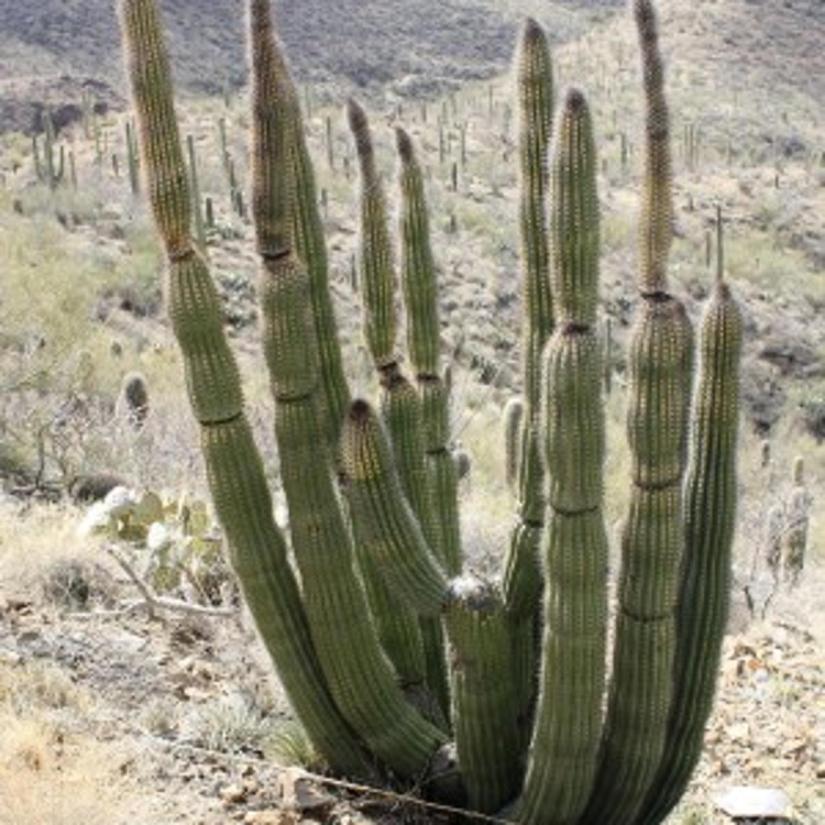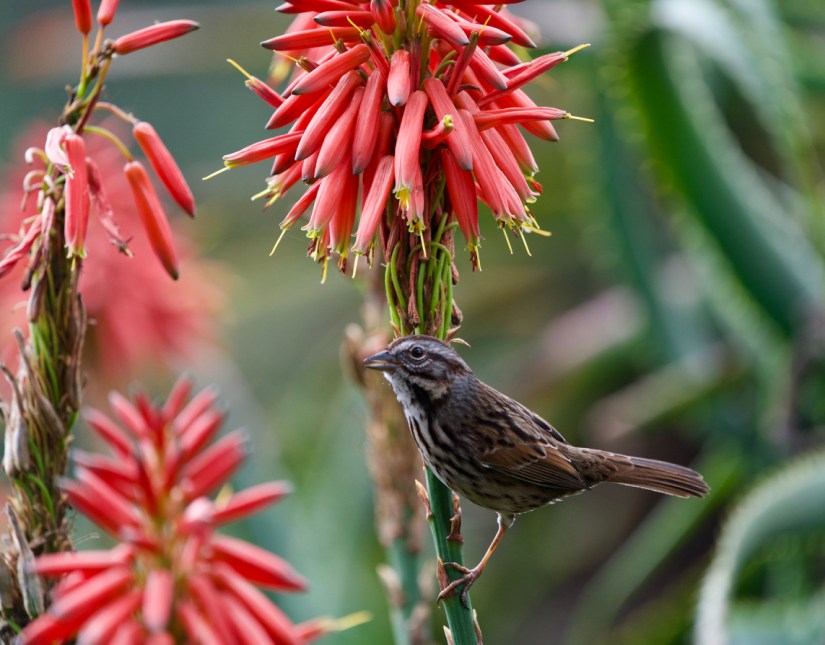Blooming succulents will stand out in the garden from other varieties due to their stunning appearance and colorful blossom. Indeed, cactus flowers belong to them.
Lots of flowering cacti cultivars burst out beautifully that might attract the plant lovers. These succulent plants are a great choice to start growing cactus both indoors or outdoors.
Their unique beauty and various shapes will become an attractive focal point in your space. Thankfully, they require little care and resist some neglected conditions.
Therefore, will you adopt some pretty blooming cacti in your garden? Get detailed information about several types of cactus flowers and how to grow and keep them blooming. Happy reading!
Contents
Identification of Cactus Flowers

The flowering cactus plants start blooming in spring to develop a pretty floral show. Their blossoms grow on tubular stems that locate in different parts of the center body.
They always bear from the mature sections. It can be on the sides or nearby the central growing point. Therefore, the tubular stems and blooming locations can distinguish the real or fake cactus flowers.
Sometimes, most cacti come with colorful dried strawflowers that attach to the stems with hot glue. Interestingly, artificial blossoms can open and close due to their natural humidity reaction.
Most varieties of cactus flowers have numerous showy petals. They also have stamens and an inferior ovary. Then, the axillary buds develop more than 30 leaf primordia before bearing the blossoms.
These leaves are commonly called bracts or scales. Thus, they exist in the hollow tube of cactus blossoms in a phyllotactic spiral arrangement.
Then, the sepals and petals grow on the upper part. It means that the flowers bear around these vegetative tissues and scales.
Blooming Time of Cactus Flowers

Some cactus flowers start blooming from young plants, while other species needs 30 years to bear the blossoms.
Generally, they should get proper light conditions, fertilizer, and adequate water. For instance, growing columnar cacti from seeds will take a longer time than rooting stems.
All flowering cacti offer their unique floral show differently. Thus, how long do cactus flowers last? The duration of blooming also varies depending on the varieties, temperatures, and water supplies.
Some species produce blossoms and wilt in one day, whereas others might last for several weeks. During the day in the early spring season, cactus flowers show the blooming petals.
It starts from the second week of February to mid-June. Even while raining, most cacti keep bursting out a marvelous floral display.
The cacti that keep blooming in spring are the Opuntia and the giant Saguaro. Meanwhile, some varieties that store lots of water in the stems can produce flowers in summer.
For instance, Carnegiea gigantea is famous for showing its stunning blossoms from June to July. This variety will produce cactus flowers at the age of 40 years and more.
Varieties of Cactus Flowers

The blooming cacti have distinctive sizes and shapes with various vibrant colors. Several flowering cactus names that have unique stems and pretty blossoms are fairy castle, sea urchin, and Easter cacti.
Those varieties can grow well both outdoors and indoors. Additionally, other cactus blossoms can be a perfect option to cultivate in the home garden. They are as follow:
-
Cereus Cactus Flowers

The Cereus cultivar is one of the night-blooming cactus blossoms with pure white color. Thus, Hylocereus undatus’ flowers will close during the days.
Besides, this blueish-green cactus grows well in dry and warm conditions. Then, the plant requires sufficient light but less water.
-
Spinystar Blossoms

Escobaria vivipara has a shade of magenta-pink. The spinystar blooming cacti feature compact spines and round stems that look like a golf ball.
Then, this viviparous foxtail cultivar starts blooming in the late spring season. The blossoms look like bright stars at the top of a cylindrical cactus. Additionally, it grows about 30 cm wide.
-
Argentine Giant Cactus Flowers

Echinopsis candidans comes with big yellowish-white flowers. The blooming season happens from March until May. However, Argentine giant cactus blossoms bloom for two days only.
Besides, this shrubby cactus has fragrant flowers that open during the nights. Also, the branched stems grow about 24 inches tall.
-
Cardon Grande Bloom

The native cactus flowers from Phoenix have large white blossoms that also bloom in the spring season. Furthermore, this hybrid variety is a cross-breeding of Echinopsis terscheckii and E. tacaquirensis.
-
Pincushion Cactus Flowers

The pincushion blossoms have pink petals. Also, its stem shapes can be either barrel or ball. Indeed, this plant is an early bloomer that starts flowering in summer.
-
Hedgehog Cactus

Echinocereus engelmannii is a native hedgehog cultivar from the McDowell Mountains. Moreover, this plant that grows in desert areas features beautiful purple cactus flowers.
-
Organ Pipe Cactus

Stenocereus thurberi or organ pipe has large white cactus blossoms. In addition, its long pipe-like stems usually develop a single flower that reaches 20 cm in diameter.
-
Cholla Cactus Flowers

The cholla cactus blossoms have yellowish-green petals that start blooming in May. But unfortunately, the Cylindropuntia fulgida has sharp jumping spines that may attach to your clothes or skin.
-
Yucca Plant

For your information, the Yucca cactus flowers do not belong to Cactaceae. However, this blooming succulent gets a wrong call as cacti.
In addition, these varieties that have two popular cultivars, the gloriosa and whipplei, thrive in coastal sites. Then, their compact rosettes of thin leaves usually have short and wavy curling hairs for borders.
-
-
Cleistocactus
-

Cleistocactus grows small red flowers on several sides of the branched stems. Indeed, this plant comes natively from some regions in America.
Then, the cactus flower name is from the word kleistos in the Greek language that means closed. It is because the blossoms are hard to bloom.
-
Blooming Ocotillo

The ocotillo, indeed, is not a real cactus. Likewise, it belongs to a succulent that has a similar desert-like environment as most cacti.
Moreover, this ocotillo blooming plant that grows in the North of Phoenix pair well with saguaros as companions. The cultivar sets small bright orange flowers with thin as well as long tubular stems.
-
Saguaro Cactus Bloom

The Saguaro cactus flowers develop from a stem at a length of 10 cm. In addition, this plant features a compact cluster of yellow stamens. These parts are also the place where many groups of creamy-white petals grow.
Furthermore, the blossoms’ size is about 8 cm wide. That is why the large flowers can attract the flying bees to look for the nectar.
-
Aloe Vera Blooms

As one of the prettiest flowering cacti in Arizona, Aloe vera cacti bloom in unique clusters of orange blossoms.
-
Orange Cactus Flowers

Being famous for its bright orange blossoms, this small desert-like plant resembles a barrel. Besides, the crimson or scarlet hedgehog cultivar comes with yellow, red, and pink cactus flowers.
That is why, if you cultivate the barrel cacti in the garden, add some companion plants like teddy bear cholla and saguaros.
-
Prickly Pear Yellow Cactus Flowers

The similar species of prickly pear mostly feature yellow, purple, or red cactus flowers. This plant belongs to Opuntia that has flattened as well as wide branched stems.
Also, this cultivar is synonymous with paddle or nopal cactus. Interestingly, its flowers, fruits, and pad are edible.
Growing Techniques of Cactus Flowers

You can cultivate any variety of blooming cacti by graftings, cuttings, and seeds. Then, each type requires a different propagating method.
For instance, grafting is perfect for weak-growing varieties. Therefore, the cutting stem will attach to a vigorous rootstock. Thus, the section will get enough nutrients from it.
Meanwhile, growing by cuttings is the easiest. Locate the cut section in a shaded area to set the callous. After four days, plant the specimen in humid soil. Then, the roots appear in several months.
The third technique is cultivating the seeds. The first step is germinating them into seedlings. Use a container that consists of compost and grit. After the sowing process, transplant them on the ground.
Flowering Cactus Plant Care Tips

Generally, most plants of cactus flowers need some specific maintenance to produce pretty bloomings. Some factors like light, water, and potting soil will affect growth.
Therefore, create the appropriate conditions for your cacti to bloom. First, choose the best quality of potting mix if you grow in containers.
Then, supply enough water at the proper time without overwatering the plant. After that, make sure that you place the potting cacti in full sun areas.
Next, choose a location with the right ventilation if you grow cactus flowers indoors. In the growing season, apply mild fertilizer to feed the plants.
Controlling the right temperature is essential since the blossoms will bloom at 16 degrees Celsius. Importantly, maintain the heat level before the flowering time comes.
Also, remember to wait until the soil gets dry for the next watering. Do not add water when the cacti are dormant. The dormancy occurs in the winter season.
Moreover, if your flowering cacti have fast growth in two years, repotting becomes essential to do. As a result, the right care will keep the plants bloom year-round.
Ultimately, proper care and the right environments help to establish a long-lasting blooming, even though the types of cacti determine the time.
Get ready to experience an enchanted floral show that lasts for weeks or months. Thus, you will embellish your home garden with colorful stunning cactus flowers.
